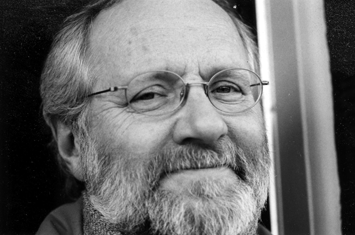Meet André Leblanc, author of ‘The Red Piano’

Canadian André Leblanc, author of 'The Red Piano'
Below is an interview with the author of The Red Piano, Canadian Andre Leblanc. It forms part of extensive teacher’s notes for the book that can be downloaded free from the Wilkins Farago website.
1. What inspired you to tell Zhu Xiao Mei‘s story?
I was working on another project (not published) on the childhood of J.S. Bach (who used to steal and copy at night, in great secrecy, the music sheets that his brother kept from him in a locked cabinet), when I read an interview of Zhu Xiao Mei in Le Monde French newspaper. She was explaining how they were organised in the camp to copy secretly the sheets of music received by a companion. There were many parallels with Bach’s story and the passion of music which is mine too.
2. What contact did you have with Zhu Xiao Mei during the writing of the book?
I was very lucky to be received by Zhu Xiao Mei, in Paris, in April 2007. She told me the story of her camp years and showed me her tiny little notebooks from the camp with Bach’s Well-Tempered Clavier reproduced in her childish handwriting. It was profoundly moving and I decided to re-write the initial Bach project, keeping my first idea of a musical passion, but around Zhu Xiao Mei’s own experience … and without naming her as she suggested.
3. You live in Canada. What research did you have to do to tell a story set in China forty years ago?
I read a lot on the period, especially one book that impressed me: Le Petit Livre Rouge d’un Photographe Chinois: Li Zhensheng et la Révolution Culturelle (Phaidon Press), with very interesting photographic archives that I shared with Barroux, the illustrator, and interesting texts and commentaries by the Chinese photographer who himself spent a few years in a camp.
4. How closely does your book resemble the story of Zhu Xiao Mei’s own life? What changes, if any, did you make?
My book is a fiction. This is NOT a biography. Some details are close to Zhu Xiao Mei’s experiences as she told them to me (the fact that in her childhood she used to play the piano on Radio Beijing, how every member of her family were sent to 7 different camps, the way she used to run from the camp dorm to practice at night, the fact that her sick mother was sent back to Beijing and managed to have a piano sent to her, how she used to copy secretly Bach’s Clavier in the camp, page after page, week after week, etc..)
But, for example, the main character of the book is much younger than Zhu Xiao Mei was at that time. Zhu Xiao Mei herself was sent to three different camps: I had to simplify. The character of Maman Han is totally invented (Xiao Mei in reality was helped by a very old actor). Xiao Mei never mentioned that her piano was destroyed, etc … I modify the organisation and the impact of events and their place in time …
5. What were the challenges of telling this story in picture book format?
Lots of challenges, indeed! – Telling a personal story with a lot of liberty and without naming the actual character I had chosen. – Telling a story set in such a complex historical period to children who have no idea of the country itself and its History! – Having so little space to tell such a complex story! – Keeping in mind that I’m not telling the whole story, but this particular musical passion! – Letting enough space to Barroux, the illustrator, so he could participate in telling the story. The fact that we knew each other allowed a greater complicity: I let him carry the emotion and poetry, while I could write something more sober.

